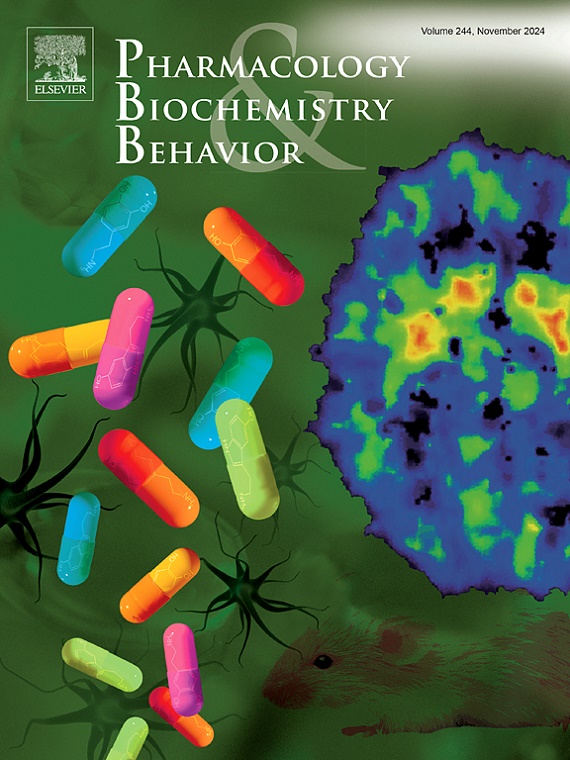Elucidating the alcohol-sleep-hangover relationship in college students using a daily diary approach
IF 3.3
3区 心理学
Q1 BEHAVIORAL SCIENCES
引用次数: 0
Abstract
This daily diary study expands knowledge of the pharmacological alcohol-sleep relationship using a multilevel modeling approach. The interplay between alcohol and sleep on hangover susceptibility is also explored. College students (n = 337; 52 % female) provided 2976 days of self-reported alcohol use. We regressed sleep duration onto accumulated sleep debt, prior night sleep duration, and estimated blood alcohol concentration (eBAC) at bedtime; linear mixed models disaggregated day and person-level effects. Binomial models, assessing days after drinking when eBAC = 0 % versus when eBAC>0 % at waketime, regressed hangover susceptibility onto the same predictors plus sleep duration. More accumulated sleep debt predicted slightly longer same-night sleep. Greater than average bedtime intoxication predicted longer than average same-night sleep when drinking ceased early, but later drinking attenuated the relationship. People who typically stopped drinking later in the night reported typically shorter sleep durations on drinking nights. When waketime eBAC = 0 %, higher eBAC at bedtime and drinking later on a given night predicted greater next-day hangover susceptibility. Typical bedtime eBAC and typically later drinking predicted typically greater hangover susceptibility. When waketime eBAC>0 %, longer sleep duration predicted more likely hangovers. Bedtime eBAC and sleep debt interacted, such that more sleep debt attenuated the positive association between intoxication and next-day hangover susceptibility. Late-night drinking appeared to reduce sleep duration and increase hangover susceptibility. Accumulated sleep debt complicated the alcohol-sleep-hangover relationship. External factors influencing sleep behaviors were not assessed, but the results highlight the need to deconstruct sleep into acute and chronic processes. Future studies should better subdivide physiological processes related to hangovers.
利用每日日记法阐明大学生的酒精-睡眠-宿醉关系。
这项每日日记研究采用多层次建模方法,扩展了对药理酒精与睡眠关系的认识。研究还探讨了酒精和睡眠对宿醉易感性的相互作用。大学生(n = 337;52 % 为女性)提供了 2976 天的自我报告饮酒情况。我们将睡眠时间与累积睡眠负债、前一晚睡眠时间和睡前估计血液酒精浓度(eBAC)进行了回归;线性混合模型对日效应和人效应进行了分解。二项式模型评估了饮酒后 eBAC = 0 % 与清醒时 eBAC>0 % 的天数,将宿醉易感性回归到相同的预测因素和睡眠时间上。累积的睡眠债务越多,则当晚睡眠时间越长。如果较早停止饮酒,睡前醉酒程度高于平均水平,则当晚睡眠时间也会比平均水平长,但较晚停止饮酒则会减弱这种关系。通常在晚些时候停止饮酒的人在饮酒当晚的睡眠时间通常较短。当清醒时 eBAC = 0 % 时,睡前 eBAC 较高和某晚较晚饮酒预示着第二天更容易宿醉。典型的睡前 eBAC 和典型的较晚饮酒预测了较高的宿醉易感性。当清醒时 eBAC>0 % 时,睡眠时间越长,宿醉的可能性越大。睡前 eBAC 和睡眠负债相互影响,因此睡眠负债越多,醉酒和次日宿醉易感性之间的正相关性就越小。深夜饮酒似乎缩短了睡眠时间,增加了宿醉的可能性。累积的睡眠债务使酒精-睡眠-宿醉之间的关系变得复杂。没有对影响睡眠行为的外部因素进行评估,但研究结果强调了将睡眠分解为急性和慢性过程的必要性。未来的研究应更好地细分与宿醉相关的生理过程。
本文章由计算机程序翻译,如有差异,请以英文原文为准。
求助全文
约1分钟内获得全文
求助全文
来源期刊
CiteScore
6.40
自引率
2.80%
发文量
122
审稿时长
38 days
期刊介绍:
Pharmacology Biochemistry & Behavior publishes original reports in the areas of pharmacology and biochemistry in which the primary emphasis and theoretical context are behavioral. Contributions may involve clinical, preclinical, or basic research. Purely biochemical or toxicology studies will not be published. Papers describing the behavioral effects of novel drugs in models of psychiatric, neurological and cognitive disorders, and central pain must include a positive control unless the paper is on a disease where such a drug is not available yet. Papers focusing on physiological processes (e.g., peripheral pain mechanisms, body temperature regulation, seizure activity) are not accepted as we would like to retain the focus of Pharmacology Biochemistry & Behavior on behavior and its interaction with the biochemistry and neurochemistry of the central nervous system. Papers describing the effects of plant materials are generally not considered, unless the active ingredients are studied, the extraction method is well described, the doses tested are known, and clear and definite experimental evidence on the mechanism of action of the active ingredients is provided.

 求助内容:
求助内容: 应助结果提醒方式:
应助结果提醒方式:


